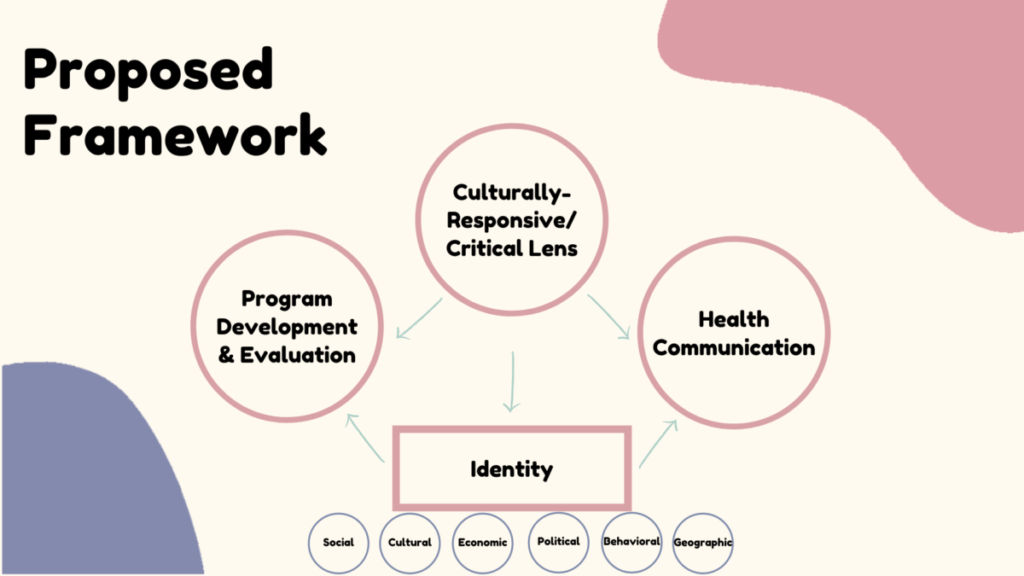
The way we perceive others and ourselves impacts our interactions daily. Considering these perceptions is critical for culturally-responsive evaluation practice, an approach that centers the cultural context of those being evaluated.
In a recent oral presentation at the 8th Annual Rural Studies Conference of the Rural Sociology Graduate Association at Penn State, Katie Sanders prosed a conceptual framework using culturally responsive evaluation and identity to inform program development, evaluation, and health communication practice from a community-based perspective. Specifically arguing for an explicit focus on identity from social, cultural, economic, political, behavioral, and geographic perspectives, Sanders posits that this evaluation approach can improve the efficacy and appropriateness of programs developed with marginalized and cross-cultural communities. Take a look at Sanders’ proposed framework below!
Our identity and the identities of those around us constantly influence the way we navigate the world. Thus, intentionally integrating these concepts in evaluation practice can enhance the sustainability and cultural-relevance of community-based programming.
